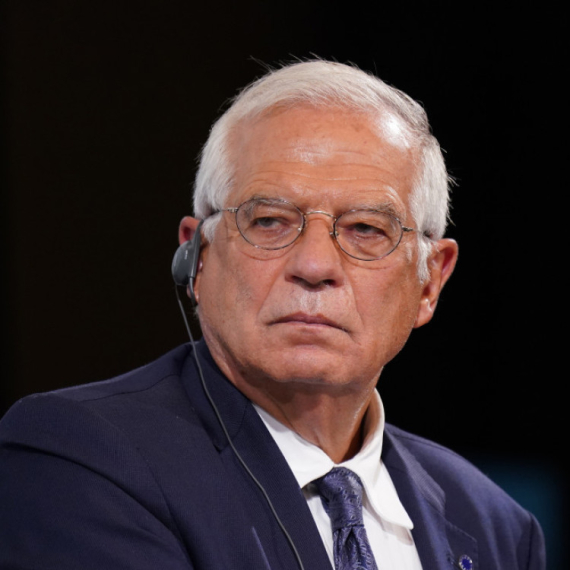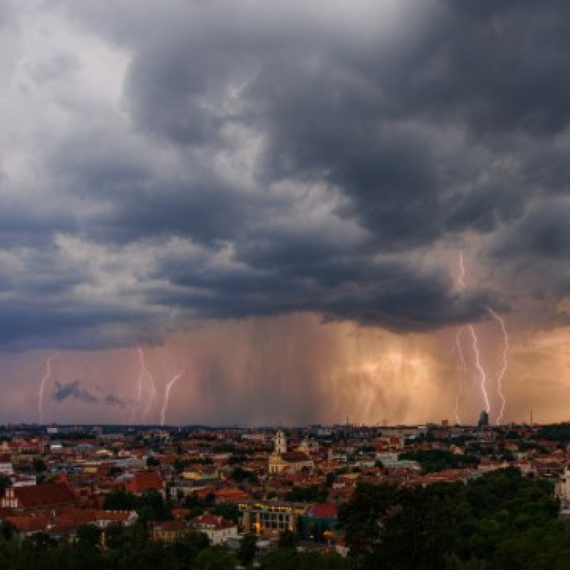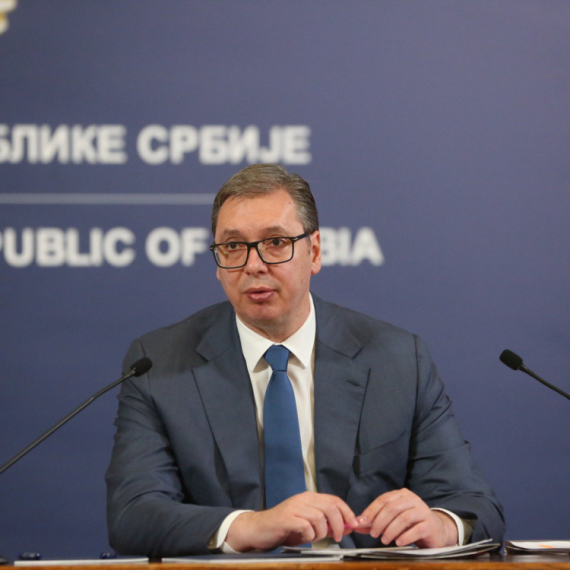Mayor blames NBS for exchange rate
Belgrade Mayor Dragan Đilas says the only one to blame for a dramatic drop in the value of the dinar is the National Bank of Serbia (NBS).
Tuesday, 12.01.2010.
14:23

Belgrade Mayor Dragan Djilas says the only one to blame for a dramatic drop in the value of the dinar is the National Bank of Serbia (NBS). Djilas spoke in Belgrade this Tuesday to add that the slide of the dinar against the euro in the past ten days was not caused by the Serbian government that sold over EUR 400mn, which were exchanged for RSD 47bn in order to cover the budget deficit. Mayor blames NBS for exchange rate Djilas calculated that the NBS could stand to earn over EUR 10mn from the last drop of the dinar. The Belgrade mayor told Belgrade tabloid Press that the NBS “profited well” from this situation, since the NBS bought euros from the government at the exchange rate of RSD 94 for one euro, and then sold euro for over RSD 97. “They behave as if they were an exchange office! If all RSD 400mn were sent back to the foreign exchange market, the profit would be over 10mn,” Djilas said. He added that the stronger euro would increase energy prices that those whose salaries had been reduced by about ten percent would now pay higher prices of heating and transport, “and that is not realistic in a crisis like this”. “We are destroying prosperous companies and successful towns in order for someone to brag before the International Monetary Fund (IMF), or someone else. Enough with the stories about the economy that caused the drop in the exchange rate,” Djilas was quoted as saying. A board in Belgrade shows today's exchange rate (Tanjug)
Mayor blames NBS for exchange rate
Đilas calculated that the NBS could stand to earn over EUR 10mn from the last drop of the dinar.The Belgrade mayor told Belgrade tabloid Press that the NBS “profited well” from this situation, since the NBS bought euros from the government at the exchange rate of RSD 94 for one euro, and then sold euro for over RSD 97.
“They behave as if they were an exchange office! If all RSD 400mn were sent back to the foreign exchange market, the profit would be over 10mn,” Đilas said.
He added that the stronger euro would increase energy prices that those whose salaries had been reduced by about ten percent would now pay higher prices of heating and transport, “and that is not realistic in a crisis like this”.
“We are destroying prosperous companies and successful towns in order for someone to brag before the International Monetary Fund (IMF), or someone else. Enough with the stories about the economy that caused the drop in the exchange rate,” Đilas was quoted as saying.


























































Komentari 3
Pogledaj komentare